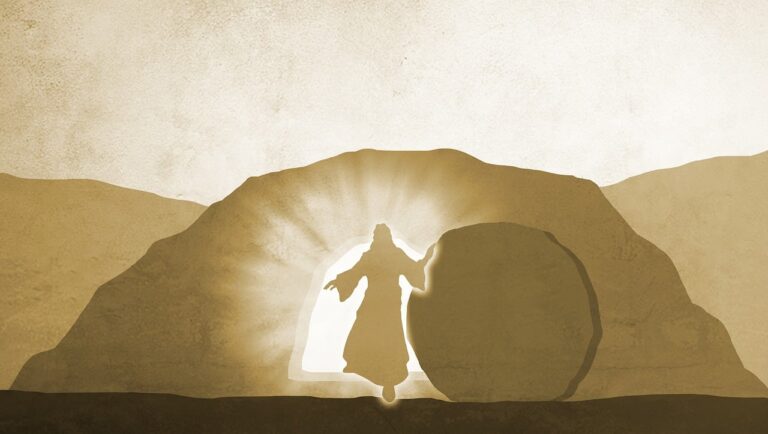Fasting or abstaining from food for a specific duration is significant spiritually within the Christian faith. With deep roots in the Bible, fasting is not simply viewed as a form of physical self-denial but also as a method to strengthen one’s connection with God, attain spiritual clarity, and experience meaningful breakthroughs.
The Bible contains stories of individuals who fasted and experienced extraordinary spiritual victories. This article will explore the spiritual power of fasting, drawing from both the Old and New Testaments, and examine how this practice can transform the lives of believers today.
The Example of Jesus: Forty Days of Fasting
One Bible’s most profound example of fasting is in Jesus Christ’s life. Before beginning His public ministry, Jesus fasted for forty days and forty nights in the wilderness, a period recorded in the Gospels of Matthew, Mark, and Luke.
“Then Jesus was led up by the Spirit into the wilderness to be tempted by the devil. And when He had fasted forty days and forty nights, afterward He was hungry.” (Matthew 4:1-2, NKJV)
During this time, Jesus faced intense temptation from Satan. However, His fasting and prayer empowered Him to resist the devil’s schemes and emerge victorious.
Jesus’ triumph over temptation established the tone for His ministry, showing that spiritual power comes from relying on God rather than physical needs.
This narrative emphasizes that fasting is not just a physical exercise but a spiritual one. It prepares believers to face spiritual battles, strengthens their resolve, and aligns their will with God’s purposes. Jesus’ example shows that fasting can be a source of immense spiritual power, enabling believers to overcome challenges that otherwise overwhelm them.
Fasting in the Old Testament: Seeking Divine Intervention
Fasting is also prominent in the Old Testament, often associated with seeking God’s intervention in times of crisis. One notable example is the story of Esther.
Faced with the annihilation of her people, Queen Esther called for a three-day fast among the Jews in Susa before she approached the king to plead for their lives.
“Go, gather all the Jews in Shushan, and fast for me; neither eat nor drink for three days, night or day. My maids and I will fast likewise. And so I will go to the king, which is against the law, and if I perish, I perish!” (Esther 4:16, NKJV)
Esther’s fast was a collective act of desperation and faith, seeking divine favor in a dire situation. The miraculous outcome occurred when God intervened to spare the Jewish people from destruction.
This story underscores the power of corporate fasting and prayer, illustrating how united, earnest seeking of God can bring about deliverance in the most hopeless circumstances.
We find another powerful example in the story of King Jehoshaphat of Judah. In the face of a formidable enemy, Jehoshaphat proclaimed a fast in Judah, seeking God’s guidance and protection.
“So Judah gathered together to ask help from the Lord, and all the cities of Judah came to seek the Lord.” (2 Chronicles 20:4, NKJV)
After praying and fasting, they were given the divine promise of victory without engaging in combat. Amazingly, the armies clashed, but Judah came out unscathed without drawing a single sword.
This tale illustrates how divine intervention through fasting can change the course of events to benefit those who seek God above all else.
Fasting in the New Testament: Spiritual Warfare and Breakthroughs
In the New Testament, fasting continues to be a vital practice for spiritual warfare and breakthroughs. One of the most striking examples involves the disciples of Jesus. In Matthew 17, a man brought his demon-possessed son to Jesus after the disciples were unable to cast out the demon. Jesus rebuked the devil, and it came out of the boy instantly. When the disciples asked why they couldn’t drive out the demon, Jesus responded:
“However, this kind does not go out except by prayer and fasting.” (Matthew 17:21, NKJV)
Jesus emphasizes the connection between fasting and spiritual authority in this statement. Certain spiritual strongholds, such as fasting, are deeply rooted and demand greater spiritual involvement. By combining fasting and prayer, believers gain the spiritual strength to face and conquer these problematic obstacles.
The early church also embraced fasting as a critical component of their spiritual lives. In the Book of Acts, the apostles and the early Christian community frequently fasted as they sought God’s guidance and direction. For example, before sending out Paul and Barnabas on their missionary journey, the church in Antioch fasted and prayed:
“As they ministered to the Lord and fasted, the Holy Spirit said, ‘Now separate to Me Barnabas and Saul for the work to which I have called them.’ Then, having fasted, prayed, and laid hands on them, they sent them away.” (Acts 13:2-3, NKJV)
This passage reveals that fasting was integral to discerning God’s will and commissioning leaders for His work. During fasting, the Holy Spirit provided clear direction to the church, leading to the successful expansion of the Gospel.
The Power of Fasting: Personal Testimonies and Lessons
Fasting has been a corporate practice and a personal discipline for individuals seeking a deeper relationship with God. The prophet Daniel provides an example of personal fasting that resulted in significant revelations. Daniel fasted for twenty-one days, abstaining from rich foods, meat, and wine as he sought understanding and insight from God.
“In those days, I, Daniel, was in mourning for three full weeks. I ate no choice food; no meat or wine touched my lips; and I used no lotions at all until the three weeks were over.” (Daniel 10:2–3 NKJV)
At the end of this fast, Daniel received a vision and a message from an angel, revealing future events and giving him the understanding he sought. Daniel’s experience teaches that fasting can lead to spiritual revelations and a deeper comprehension of God’s plans and purposes.
Fasting also serves as a means of humbling oneself before God. King David, known for his deep relationship with God, often fasted in times of repentance and seeking God’s mercy.
“I humbled myself with fasting, and my prayer would return to my own heart.” (Psalm 35:13, NKJV)
David’s fasting expressed his humility and dependence on God, demonstrating that fasting is not just about seeking answers or breakthroughs but also about aligning one’s heart with God’s will through repentance and submission.
Practical Applications of Fasting Today
The Bible’s examples of fasting provide a template for how believers today can incorporate this practice into their spiritual lives. Fasting is a discipline that can be tailored to individual circumstances, whether it’s a complete fast (abstaining from all food), a partial fast (abstaining from certain foods or meals), or a specific period dedicated to prayer and fasting.
When fasting, it’s essential to approach it with the right heart and motives. Christians should fast sincerely to draw closer to God, seek His face, and align their will with His. Fasting is not just a tool to get what we want from God but a means to humble ourselves, recognize our dependence on Him and open our hearts to His guidance and transformation.
Jesus also warned against fasting with the wrong motives, such as seeking human approval. In the Sermon on the Mount, He instructed:
“Moreover, when you fast, do not be like the hypocrites, with a sad countenance, for they disfigure their faces so that they may appear to men to be fasting. Assuredly, I say to you, they have their reward.” (Matthew 6:16, NKJV)
Instead, fasting should be a private devotion between the believer and God, carried out with humility and sincerity.
Conclusion: The Transformative Power of Fasting
As demonstrated throughout the Bible, fasting is an assertive spiritual discipline that brings believers closer to God, strengthens them for spiritual battles, and opens the door for divine intervention. From Jesus’ forty-day fast to Esther’s three-day fast, the Bible shows that fasting is a means of accessing spiritual power, receiving guidance, and achieving victories that would be impossible through human effort alone.
For Christians today, fasting remains a vital practice. Whether seeking a breakthrough in a challenging situation, discernment for a significant decision, or a deeper relationship with God, fasting, when combined with prayer, can lead to profound spiritual growth and transformation. As believers follow the biblical examples of fasting, they can expect to experience the same spiritual power that has been evident in the lives of God’s people throughout history.
















